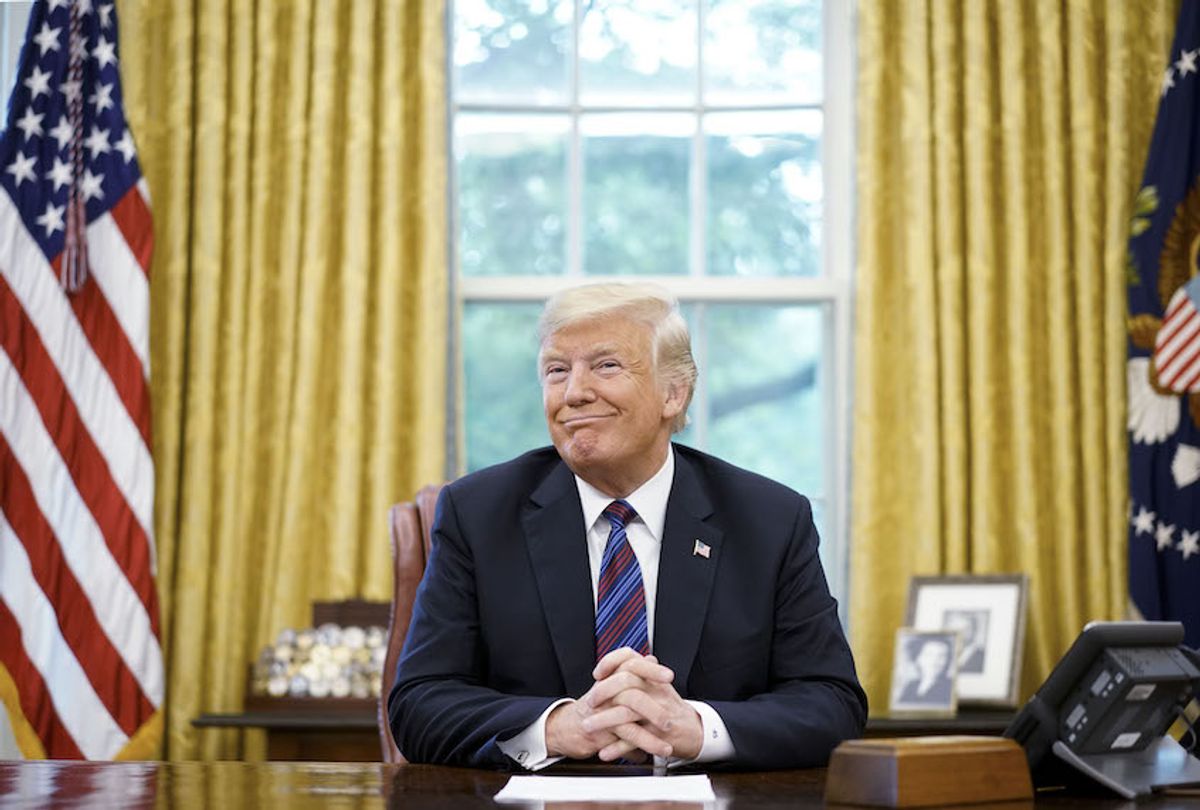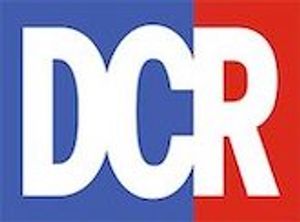Five years ago, on June 16, 2015, I watched in mounting panic as Donald Trump and Melania rode down the escalator at Trump Tower to announce his run for the White House. I immediately dropped everything I was working on because, knowing Trump well, I feared what was about to unfold and it would not be good.
This was far from the first time Trump had crowed about why he should be president. He had been saying this since at least 1987. It was part of his delusional belief that he is smarter than everyone else.
But this time was different. And I realized instantly what made it different could propel him to the Republican nomination.
Sadly, it turned out I was right. But it didn't matter. As Trump would later say, I tried to stop him from becoming president and failed. That is one of the few things he's ever said that is 100% factually accurate.
The first problem on June 16, 2015, was with the politics reporters who cover campaigns. Trump had humiliated them in the 2012 campaign. They treated him as a serious presidential candidate while only two national journalists, Lawrence O'Donnell of MSNBC and I, recognized, independently, that Trump actually was running for a richer contract for his faux reality show Celebrity Apprentice.
Ill-equipped politics reporters
Politics reporters cover the horse race, not policy. Politics reporters know the numbers of polls, not financial statements. They knew how to dig up connections between donors and candidates, not financial schemes, bankruptcy records and securities disclosures or how to analyze these arcane documents.
When I ran into various print and broadcast politics reporters and told them the Trump campaign of 2012 had nothing to do with facing Barack Obama, they blew me off. Why not? After all, what did I know about political campaigns; I had told many peers I was uninterested.
The herd — and much of journalism is herd coverage, especially of campaigns — ignored what O'Donnell and I saw because Trump was such a novel candidate. He was an interesting story to tell, more interesting than listening for any change in the umpteenth recitation of a typical candidate's stump speech. Instead of the blah-blah-blah at every rally, followed by more of the same the next day, the mercurial Trump was a good story.
Then Trump made his newer and richer deal with NBC to renew his aging show. He announced that much as America needed him in the White House, at that moment his television show needed him more.
Insulting the nation
That should have been the end of Donald Trump in American politics. He insulted the office of the president and the American voters and for what? Just a few more millions of dollars that flowed in and out of his hands like water.
The politics reporters had egg on their faces. Having been played for fools, they were not about to be taken by Trump a second time. So, in 2015 they were dismissive and, in the beginning, said he had no chance.
Precisely as I feared, the politics reporters treated the Trump campaign as a vanity project and did not take him seriously. That would prove to be a huge mistake for America and the world.
What I saw was what Trump saw — an opportunity for Trump to get the Republican nomination.
Promising impossible growth
The timing was good for Trump, unlike in 2012. America often switches out the party in the White House after eight years. Americans also vote their pocketbooks. That meant that if Trump could make people believe he could grow the economy at two or even three times its average rate since World War II, voters would flock to him. (Actual economic growth under Trump has been subpar, even before the devastating impact on the economy in the coronavirus pandemic.)
The economy in 2015 had not yet recovered from the Great Recession. It still hasn't.
Wages had begun rising a bit in 2013, but not enough to make millions feel flush instead of constricted. The number of jobs was growing. But well-paying manufacturing jobs had not recovered from offshoring — which Trump exploited — along with increased efficiency and technology — which Trump ignored because he doesn't understand those.
The Clown Car
On top of that, the Republican bench was bare. Former Florida Gov. Jeb Bush was the front-runner, but the prospect of a third Bush White House was not exciting anyone. Soon there were 17 Republican contenders, many of them so manifestly unqualified to hold office that they became known as the Clown Car.
Trump was the most unqualified of all, a man who I had seen at times be delusional and had never done a day of public service in his life. He was a draft dodger, a pal of mobsters including a major cocaine trafficker he was in business with and who he helped evade the long prison sentence he was rightly due.
But few knew this or that he had put a sickly infant's life in jeopardy as part of a scheme to get a bigger share of his father's fortune. What they knew was his polished image as a master businessman, an image that had no connection to reality.
Very few realized Trump suffered from serious mental illness. He believes he is the greatest of all humans, smarter and more competent than everyone else despite abundant evidence that he is not very smart, doesn't understand basics of science or economics and has spent his entire life blowing one fortune after another, aided by lying on accounting, loan and tax documents. He even cheated novice roulette players at Trump Castle, the only known cheating at any Atlantic City casino.
Winning above all
But Trump benefitted from feral instincts that feed him from any social norms, any notion of fair play or even decency. To the Trump family, only one thing matters – winning. And it's a win if you get the money and don't get indicted.
Honor is a word unknown in the Trump family. Lying, cheating, stealing and denying are absolutely OK to the Trumps so long as they benefit.
The public knew Trump as this modern Midas, a multi-billionaire business genius, thanks to his endless self-promotion and his television show. I knew him as a fraud, a con man whose riches were smoke and mirrors; a man who was mobbed up to his eyeballs.
Trump picked off the Clown Car candidates one by one, not unlike the story told by the fictional President Jed Bartlett in an episode of the West Wing, where O'Donnell had been a writer and producer. The Martin Sheen character said he wasn't supposed to become president, but he did as one by one others fell by the campaign wayside.
"The Making of Donald Trump"
I tried to do a book about Trump, but my various publishers and others all said by the time a book was out Trump would be out. By the time a quickie book publisher, Levin House, made an offer I had just 27 days to write "The Making of Donald Trump," which came out in August 2016. I sent copies to many politics reporters, none of whom read it, a fact I knew because they asked questions that the book answered and made statements my readers knew were baseless.
The book never got a review in my last newspaper, The New York Times, even though it made the bestseller list. After Trump eked out his narrow Electoral College victory, the paper's publisher A.G. Sulzberger and editor Dean Baquet acknowledged in an extraordinary front-page statement that the 2016 campaign was not the paper's finest hour.
My book that the politics reporters and our most important newspapers largely ignored sold very well in Europe, was named Political Biography of 2016 in Great Britain and was translated into 11 languages.
Trump won because the timing was right, the Russians helped him and the Democrats chose a candidate whom many Americans hated. Few knew she was a Bible-carrying Methodist who prayed with her staff daily and scared Vladimir Putin because she would have squeezed him economically to make him leave occupied Crimea and eastern Ukraine.
Politicians' promises
Political campaigns are seldom about foreign policy or, for that matter, competence. And they are rarely about detailed promises. Can you explain just what Al Gore meant with his Social Security lockbox? Or Hillary Clinton's plan for high-tech manufacturing? To most people those are just politicians' worthless promises — so much blah blah blah.
Campaigns are about hopes and dreams. And in Trump's case, also about anger and fear. Trump found a way to blend the two.
He promised economic growth at double, even triple, the average rate of the last 70 years. Anyone who understands economics knew that was nonsense, but all Trump had to do was sell the sizzle even if there was no steak.
Anger was easy. To people who played by the rules, who went to work every day, but whose paycheck had been flat to falling for their entire lives wanted a better life. The rising cost of housing and for many the unattainable goal of sending their kids to college helped Trump, who would ask what the Democrats had done to solve these issues.
Fear of others
And then Trump ladled out fear–the fear that Other People were unfairly getting ahead. Muslims and Mexicans topped Trump's list, but he attacked Black Americans and Asians, all the while proclaiming himself "the least racist person you've ever met."
So, five full years into this political disaster there is another mistake Americans could make, at least decent Americans who believe in democracy and liberty rather than autocracy.
The mistake is to assume that Trump is so badly wounded by botching response to the pandemic and his racist response to the Black Lives Matter movement that he is toast. Trump is feral, a wild animal who cannot be domesticated and tamed.
To count him out before the ballots are cast and counted would be a mistake as awful as those of the politics reporters who covered the 2016 campaign.
Be smarter than they were.




Shares